PODCAST - Eye for Iran: Hostage Diplomacy and Hamid Nouri
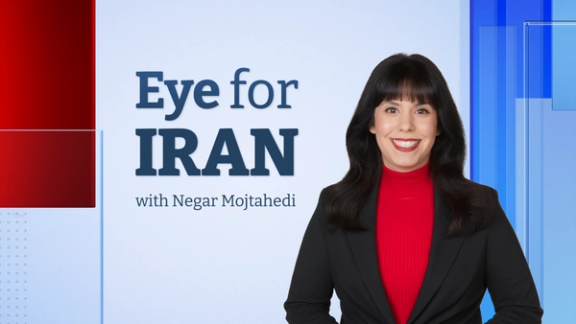
Convicted war criminal Hamid Nouri is back on Iranian soil after being released by Sweden in a prisoner swap deal with Tehran on June 16.

Convicted war criminal Hamid Nouri is back on Iranian soil after being released by Sweden in a prisoner swap deal with Tehran on June 16.
In this week’s episode of ‘Eye for Iran,' we discuss how Iran’s hostage diplomacy is outplaying the West.
Host Negar Mojtahedi spoke with Iranian-Canadian human rights lawyer Kaveh Shahrooz whose uncle, Mehrdad Ashtari, was killed during the 1988 massacre of thousands of political prisoners that involved Nouri.
Alongside Sharooz is Mariam Claren, a German-Iranian fighting for her mother, Nahid Taghavi, a German national who has been unlawfully detained in Iran’s notorious Evin prison since 2020.
Shahrooz was a young child in Iran when his mother’s brother was imprisoned, tortured and hanged as a political dissident - to this day he said he doesn’t even know where he’s buried.
Nouri’s conviction of crimes against humanity, under universal jurisdiction, for his role in the 1988 massacre that saw more than 5 thousand political prisoners killed, was a modicum of justice for Shahrooz and other families.
He said “the fact that somebody was finally meant to pay for this crime was meaningful,” but now after Nouri’s release, he feels “deeply hurt” and “abandoned."
Claren, whose mother - a retired architect, remains in Evin prison in the same ward as Noble Peace Prize winner Narges Mohammadi, said the West should not give into hostage diplomacy. She said her own mother, wouldn’t want to be exchanged in such a way.
She questions why Ahmadreza Jalali, a Swedish-Iranian doctor on death row in Iran, was excluded from the prisoner swap.
“Maybe he just wasn’t Swedish enough,” said Claren.
Claren said “we should address the elephant in the room. Why did Johan Floderus, who is part of an EU delegation of the Middle East, who knows about the hostage diplomacy in the Islamic Republic of Iran, travel as a tourist to Iran?”
For more, watch or listen to Episode 3 of 'Eye for Iran.'
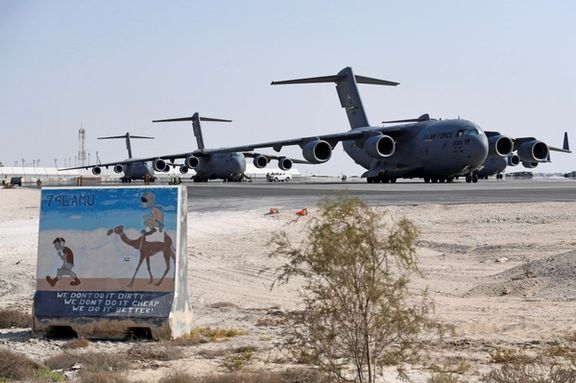
In early 2024, as the US and Qatar quietly extended the use of America’s largest military base in the Persian Gulf, they appeared united in their support for US military activities from Al Udeid Air Base.
This unity persisted until April, when the Islamic Republic of Iran launched a massive rocket and missile attack against Israel.
Qatar declared, according to an April report in the Iranian government-controlled media, that the US is barred from using its airspace in Qatar. Doha hosts key leaders of the Iran-backed Hamas terrorist designated organization.
In one of the starkest signs of Qatar impeding the US from defending its allies in the Mideast and American national security interests, the Middle East Media Research Institute (MEMRI) published on Thursday a scarcely noted 2012 interview with Qatar’s former Prime Minister Hamid bin Jassim, who said Qatari foreign policy prohibits military operations against Iran.
Hamad bin Jassim (HBJ) told the Qatari-owned Al-Jazeera Network in an April 1, 2012 interview that “The Iranians and the Americans know that we oppose any military action against Iran." When asked by Al-Jazeera "Will the Americans ask for your permission?,” the former Prime Minister said "The Americans know that we will not accept any hostile action from Qatar, against any neighboring country, especially against Iran."
Al-Jazeera said, "There is now escalation between Iran and the US. Couldn't the Al-Udeid Air Base be used to...", prompting HBJ to stress "I have told you that we will not accept – I am saying this clearly and underlining it twice... We will not accept any hostile action against Iran from Qatar. Full stop."
HBJ’s statement appears to render the Al-Udeid base futile against one of America’s principal enemies, the Islamic Republic, which the US has consistently designated a state-sponsor of terrorism since 1984.
Rich Goldberg, who served on the National Security Council during the Trump administration, told Iran International, “There’s little value in having a base right next to our greatest threat in the region if a primary condition for having the base is that it can never be used to confront that threat.” Goldberg is a senior advisor for the Washington-based Foundation for Defense of Democracies.
When approached by Iran International for a comment, a US State Department spokesperson said, “We refer you to US CENTCOM for comment on Al Udeid. We refer you to the Government of Qatar for comment on their policy.”
However, in response to an Iran International press query CENTCOM, a US defense official, said " We have no additional information to provide as this topic is not a Department of Defense decision. Therefore, we defer you to the U.S. State Department for comment."
Iran International reported in October, after the Iran-backed Hamas movement invaded Israeli border regions and killed 1,200 people, including over 30 Americans, Mohammad Bagheri, the chief of staff of Iran’s armed forces, asked Qatar’s defense minister for Doha to deny the US the use of its Al-Udeid airbase.
Qatar’s disruption of US military activity may have also weakened the US response to the Iran-backed militia, Kataib Hezbollah, in Iraq that murdered 3 US soldiers in Jordan in late January.
Retired US Navy Intelligence Commander, Jennifer Dyer, noted on her website, the “The Optimistic Conservative” in February, ”It’s possible that no Air Force strike-fighters from Al-Udeid participated. If that’s the case, the likely reason is that Qatar wouldn’t allow it.” Dyer added, “The silence from Al-Udeid doesn’t bode well...for the U.S. ‘option’ of attacking Iran’s nuclear weapons program. Doing that would involve a huge target set, not even so much for the nuclear weapons program itself as for neutralizing Iran’s air defenses and means of retaliation.”
Qatar and the Islamic Republic share the vast South Pars gas field in the Persian Gulf and this may be a reason why the supremely opulent gas-rich nation of Qatar has gone to great lengths to not pick fights with Iran’s clerical regime.
The two countries have drawn closer in recent years. Israel’s former president Reuven Rivlin delivered a dossier about Qatar’s alleged role in funding Iran’s Islamic Revolutionary Guard Corps to president Joe Biden in 2021. The US said at the time it would investigate the dossier.
The new MEMRI translation of HBJ’s Arabic-language interview sparked intense criticism from American and Israeli security experts.
Ezra A. Cohen, a former US Department of Defense official, wrote on X, formerly known as Twitter,that “Every day it becomes more and more clear that Qatar is holding the United States hostage.”
The popular Israeli journalist and commentator, Caroline Glick, wrote on X “The Biden administration does not designate Qatar a state-sponsor of terrorism, despite the fact that it is one of the largest state sponsors of terrorism. No. The administration designated Qatar a major non-NATO ally, which it decidedly is not.”
Qatar is in the crosshairs of many US Senators and Congressional representatives for its support of the US-designated terrorist movement Hamas. There are increasing calls on Capitol Hill for Biden to reexamine America’s alliance with Qatar and consider the relocation of the Al-Udeid base to another state in the Mideast that is not embroiled in funding Islamist terrorist movements.
MEMRI president and founder, Yigal Carmon, argues that Qatar is the single largest state-enabler of both Sunni and Shiite Islamist terrorist movements across the globe. Carmon termed the Qatari Emir Tamim bin Hamad Al Thani’s government a “dishonest broker” who should not be involved in the effort to secure the release of Hamas held hostages in the Gaza Strip.
Qatar’s ambassador to the US, Meshal bin Hamad Al Thani, did not respond to an Iran International press query. Iran International sent multiple email press queries to Qatar’s embassy in Washington.
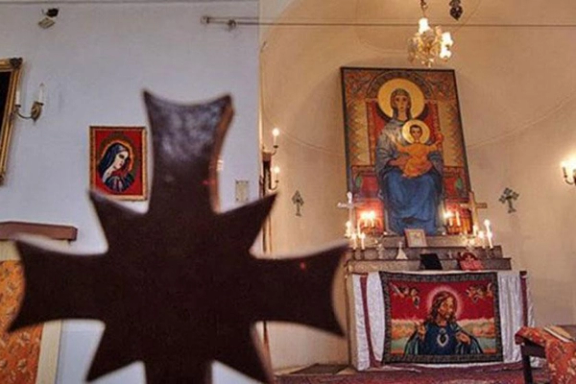
The Iranian judiciary has sentenced five Christian converts to over 25 years in prison.
The Ahvaz Revolutionary Court handed a 10-year jail term to Hamid Afzali and five-year jail terms to Nasrollah Mousavi, Bijan Gholizadeh, and Iman Salehi. Zohrab Shahbazi also received 9 months, totaling 25 years and 9 months, announced human rights group Hengaw on Wednesday.
"So far, there is no information available about the specific charges against these five Christian converts or the details of their accusations," said Hengaw.
London-based non-profit Article 18 focused on human rights violations against Christians in Iran, reported that the detainees are all from the city of Izeh in Khuzestan province.
"The convictions were based on Article 500 of the penal code, which has been used on numerous occasions to convict Christians," Article 18 stated.
Additionally, Yasin Mousavi another Christian convert from Izeh, was sentenced to 15 years in prison.
Yasin was sentenced to 10 years for “membership in a group intent on disrupting national security” and an additional 5 years for “propaganda against the regime through the promotion of ‘Zionist’ Christianity,” according to the Iranian Christian website Mohabat News.
Mousavi was previously arrested during Iran's nationwide uprising dubbed Woman Life Freedom protests in 2022 and later released on a 20 billion rial ($30,000) bail.
He was rearrested again on December 22, 2023, as part of a bigger wave of crackdown on Christians in Izeh by intelligence forces. He was transferred to Ahvaz Central Prison (Sheiban) after 20 days of being held at the Ministry of Intelligence detention center, according to Article 18.
Although Christians are acknowledged as a religious minority in Iran, authorities impose severe penalties, especially on those who convert from Islam to Christianity
Renouncing Islam is forbidden by Sharia and the punishment could be death, although the government in Iran pursues lesser punishments.
In its annual report released in February this year, titled ‘Faceless Victims: Rights Violations Against Christians in Iran’, Article 18 urged Iran to release all Christians detained on faith-related charges and to specify locations where Persian-speaking Christians can freely worship in their native language without fear of arrest or prosecution.
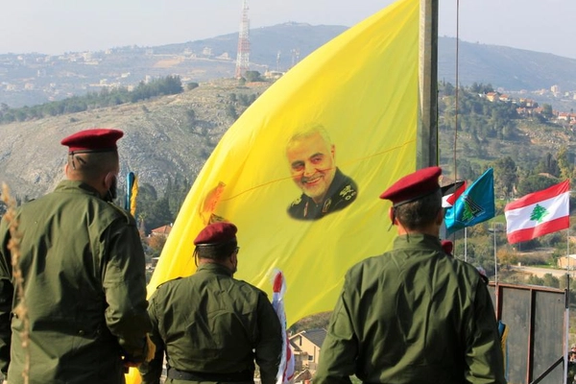
Iran's mission to the UN in New York warned Israel on Friday about the consequences of waging a full-blown war on Tehran-backed Hezbollah of Lebanon.
A statement posted on the Iranian mission's X account said Hezbollah "has the capability to defend itself and Lebanon."
"Perhaps the time for the self-annihilation of this illegitimate regime has come," it said.
"Any imprudent decision by the occupying Israeli regime to save itself could plunge the region into a new war, the consequence of which would be the destruction of Lebanon's infrastructure as well as that of the 1948 occupied territories," the Iranian mission warned.
It also called Israel the "ultimate loser" of the possible war.
The statement came after Israeli officials told the US they are planning to shift resources from southern Gaza to northern Israel in preparation for a possible offensive against Hezbollah.
However, US officials are worried that Hezbollah may overwhelm Israel’s air defense including the Iron Dome.
Tel Aviv has communicated to the US concerns of the vulnerability of Israeli air defense against precision-guided munitions and missiles from Iran-backed Hezbollah, three US officials have told CNN.
Hezbollah leader Hassan Nasrallah said Wednesday that his forces, armed and trained by Iran, can target anywhere in Israel, in the event of a full-blown war.
In his televised speech Wednesday, Nasrallah said “there will be no place safe from our missiles and our drones” in Israel.
One day earlier, the Hezbollah-affiliated outlets had published footage that they claimed were shot by a drone flying over residential and military sites deep in Israeli territory.
The Lebanese group is widely believed to have amassed more than 100,000 missiles, and its leader has repeatedly boasted about weapons that he claims have not been used so far in its eight months of low-key but constant fighting with Israel.
Hezbollah has been firing rockets at Israel in solidarity with fellow Iran-backed militant group Hamas since the Gaza war erupted in October, forcing tens of thousands to flee homes in Israel.
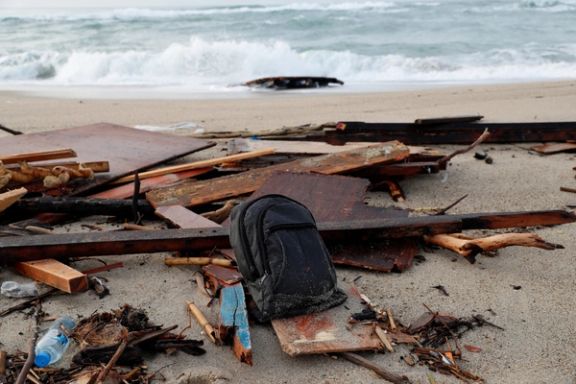
The Embassy of the Islamic Republic in Rome has confirmed that Iranian nationals were among those who perished when a migrant sailboat capsized in the Mediterranean on June 16.
Mitra Ghasem Karimi, whose brother and sister are among those missing, informed Iran International that the families of the others are independently attempting to hire helicopters to search for their relatives.
The vessel had departed from Turkey approximately eight days prior with around 75 individuals from Iran, Syria, and Iraq on board, according to reports from the UN refugee agency and other UN organizations.
The Italian coastguard has recovered 20 bodies from a weekend shipwreck in the Ionian Sea off the southern Italian coastline, with dozens more missing and presumed dead.
Survivors, according to the AP, recounted that the boat's engine caught fire overnight on Sunday, leading to its capsizing off the Italian coast.
The fatalities mark a total exceeding 800 individuals who have perished or gone missing and are presumed deceased while attempting to cross the central Mediterranean this year alone, amounting to an average of five deaths per day, according to reports from UN agencies.
Iranians, known for their extensive history of emigration, primarily since the 1979 revolution, represent a significant portion of migrants embarking on perilous journeys across the English Channel to reach the UK and across the Mediterranean Sea to Europe.
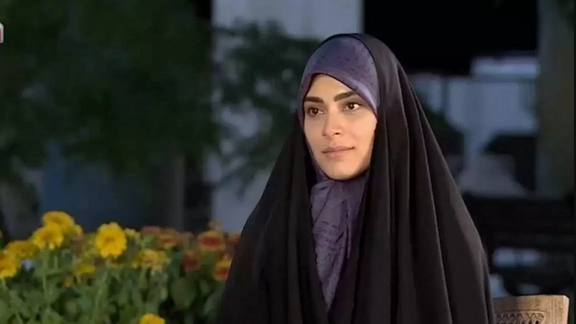
Parliament speaker and presidential candidate Mohammad Bagher Ghalibaf has faced renewed public backlash as further revelations surface about a scandal involving his family's trip to Turkey.
Dubbed "layette-gate" in 2022, Ghalibaf was embroiled in controversy when his wife, daughter, and son-in-law returned from a trip to Turkey with substantial excess luggage, reportedly including items such as a baby bed and stroller readily available in Tehran.
Critics levied accusations of hypocrisy against Ghalibaf, pointing out discrepancies between his public rhetoric advocating support for domestic products and patience during the country's worst economic crisis while simultaneously allowing his family to travel abroad to purchase luxury goods.
As her father now vies for the presidency in the upcoming June 28 elections, on Tuesday, his daughter Maryam made a televised attempt to clear her family's name, but instead, the public's outrage against Ghalibaf only intensified.
She admitted to her trip to Turkey but vehemently denied the purpose, stating, "I did travel to Turkey, but not to buy layette." In a bid to clear her father's name, she said, "They were unable to criticize him directly, so they fabricated falsehoods about his family."
The saga in 2022 was worsened after the revelation of a video from the 2017 presidential debates showing Ghalibaf admonishing a former minister for traveling to Italy to purchase baby clothes, asserting bleakly, "You think our economy will improve, but it never will!"

Civil activist Vahid Ashtari, who initially disclosed details of the trip, responded to Ghalibaf's daughter's appeal on Wednesday by sharing airport documents purportedly indicating they were carrying 294 kilograms of luggage.
“Mr. Ghalibaf's daughter said on TV that she went to Turkey, but not for shopping. Here is the image from the Meraj Airlines system that I am sharing for the first time. They should clarify what these 294 kilograms of baggage registered under her husband’s name contained - 20 packages and luggage!” Ashtari wrote on X.
In the interview, Ghalibaf’s daughter also stated that those who fabricated lies about her had been punished. However, Ashtari shared a document purportedly indicating his acquittal in the "layette-gate" case.
Meanwhile, the IRGC-linked Tasnim News Agency attempted to vindicate Ghalibaf in response to Ashtari's tweet by posting an image, purportedly released by Meraj Airlines, "refuting false rumors about the weight of Ghalibaf's family luggage" and indicating potential "judicial action against these allegations."
The combined weight of the luggage depicted in Tasnim's image for the family amounts to approximately 130 kilograms, a detail that prompted some users to argue that it is still a substantial amount.
It is not the first time Ghalibaf's daughter has been at the center of scandal. In 2016, the Memari News website, owned by prominent whistleblower Yashar Soltani, reported that Lavizan Park in Tehran had been closed for several days for her wedding celebration while her father was mayor of Tehran.
Memari News detailed how the municipal forces of Tehran's fourth district were on alert for the wedding, utilizing municipal resources to illuminate Lavizan Forest Park at the cost of local authorities.
In Tuesday's television interview, Ghalibaf's daughter also denied the allegations as false, stating, "These lies ruined our wedding celebration."
In 2019, Soltani was imprisoned for exposing financial corruption within the Tehran Municipality during Mohammad Bagher Ghalibaf's tenure and for revealing details about the wedding. Earlier this month, Soltani was rearrested for his reporting on corruption.
Back in 2022, a leaked audio file of IRGC commanders discussing extensive financial corruption involving Ghalibaf during his tenure as Tehran mayor also caused an uproar in Iran, reflecting the deep connections between the IRGC and the country's political echelons.